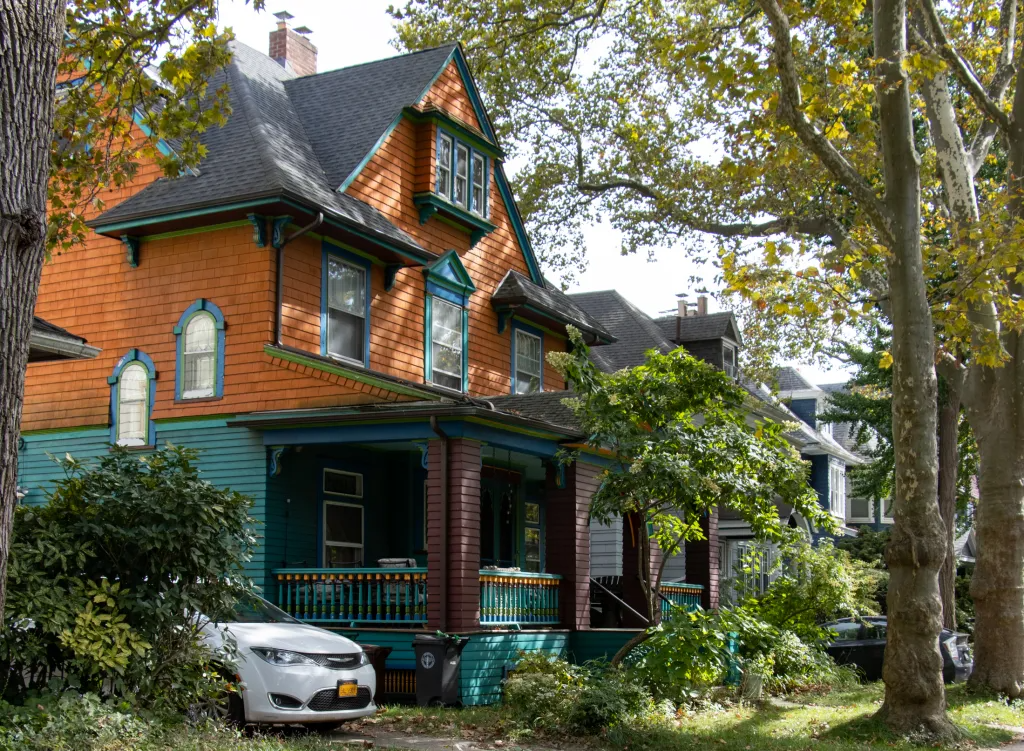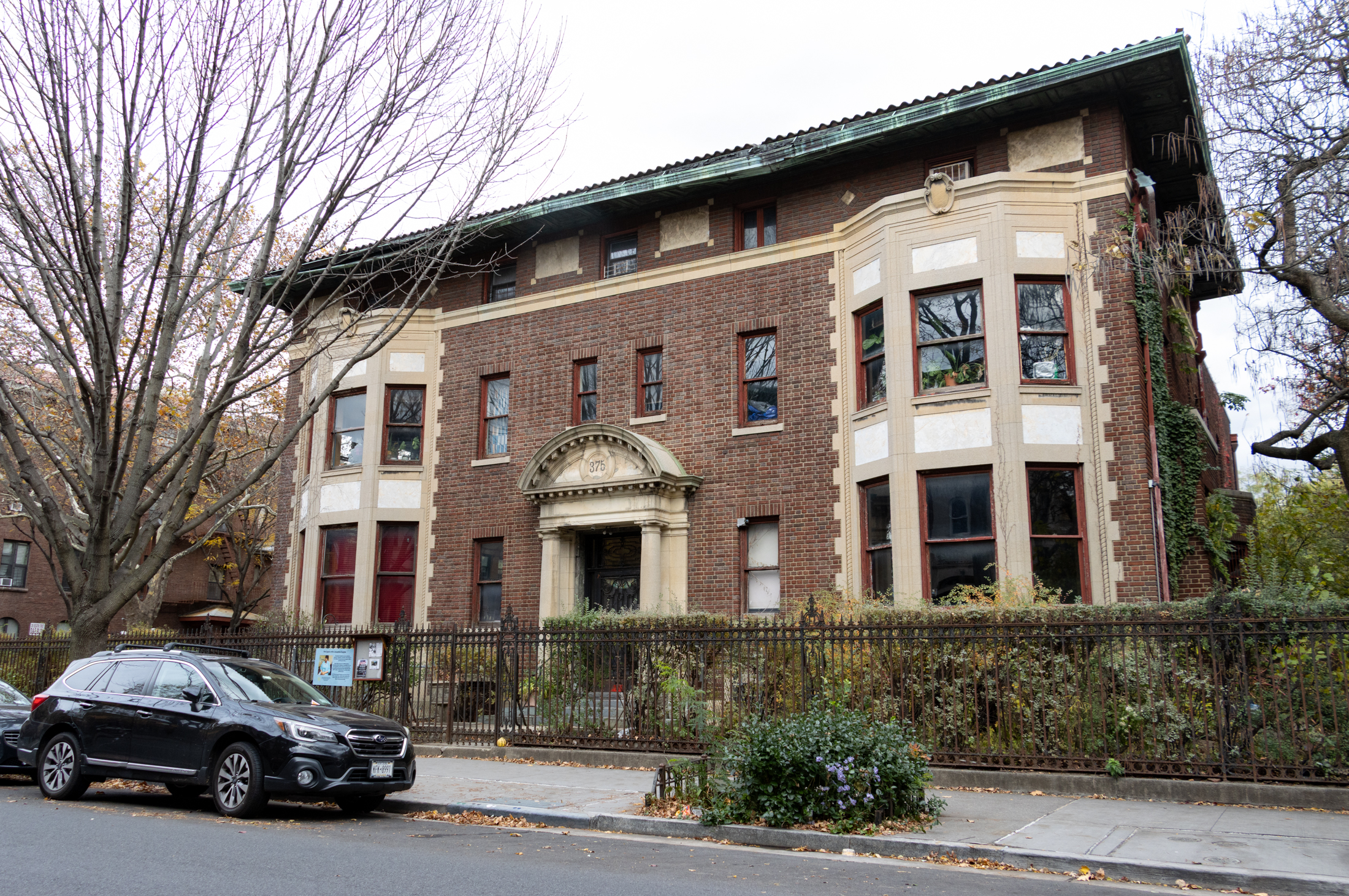City To Get Tough On Negligent Landlords
While we’re not so sure about its constitutionality, a new bill to be proposed by the Bloomberg administration would give the city more power to take proactive measures to fix up derelict buildings whose landlords who fail conform to certain safety standards. Under the plan, HPD could go into a building with a minimum of…


While we’re not so sure about its constitutionality, a new bill to be proposed by the Bloomberg administration would give the city more power to take proactive measures to fix up derelict buildings whose landlords who fail conform to certain safety standards. Under the plan, HPD could go into a building with a minimum of 27 uncorrected code violations and redo everything from roofs to entire electrical systems and then stick the negligent landlords with the bill; if the owner didn’t pay up, the city would put a lien on the building. The goal is to restore the ailing portion of the housing stock at a time when demand for housing in the city has never been stronger; the goal is 200 buildings a year for five years. Sounds like a good move to us, though if they really wanted to fix the problem they’d get rid of all rent controls.
City to Seek Broader Power Over Buildings [NY Times]
Photo by humain





Price controls limits supply which perpetuates shortages, really is economics 101.
However, a home is a little different then most other ‘products’ and I think that it isnt a bad idea to blunt economic forces so that people arent forced from their home the minute a neighborhood becomes “hot” – I favor total vacancy decontrol and expanded luxury decontrol to roust those millionaries with the $500 a mo 2br and free up more apartments. Then put in place a annual rent increase “cap”. So that rents can’t rise too quickly yr to yr.
As to why a LL would run the building into the ground – it is simple – either they are incompetent or they would rather take the rental income for profit then put it back into the building.
Also in many buildings Rent Stabilization is good for the LL. In buildings where the current rent is market rate (very often in outer boros) the RS increases come to a tenant and almost make the rent increases ‘mandated by government’ – when in reality in a free market system the tenants would understand that any increase is up to the LL and if they were paying market rate rents they might simply negotiate w/ the LL to have no increase. However, under RS – most tenants simply beleive they can not negotiate and that the increase is more or less mandatory.
So, Jake, you’re actually advocating more gov’t intervention, not less? More Section 8, more low-income housing, more projects? Um, isn’t that just asking taxpayers to subsidize the housing problem, instead of renters?
Listen. It’s disingenous to say that landlords are bearing the burden of rent regulation, and when people say “so what, they’re responsible for their investments”, to switch it up and say, actually, no, other renters are bearing the burden of rent regulation. Which is it?
And if it’s a combo of both, can we agree that rent regulation, while not the most fair tool for creating affordable housing, is at least a way of routing the costs through the open market, which is better than pumping tax dollars down the NYCHA drain? More bang for the buck, and we all get to “subsidize” a system that allows for diverse, integrated neighborhoods where the necessary low-cost labor force can live and thus contribute to the smooth functioning of the city.
What is wrong with that?
1.24 here- 1.32, 1.37, thanks for your responses. To you 1.37, a further question: you say “the larger supply of rentals on the open market, given demand hasn’t changed, would clearly drive down prices.†You’re right re: demand, but what about a) all those market-rent 1-bedroom apartments housing 2 or 3 college kids who don’t have the resources to afford their own place, b) those who live in other boros/NJ/CT etc but would rather live in Manhattan (closer to their job, etc), but presently can’t afford the sky high rents, c) the steady stream of people who move here every year for various reasons, which pretty much ensures that demand for living in our city will never flag. Do we assume there is no pent-up demand for housing? I live in Brooklyn, but would move back to Manhattan in a heartbeat if could afford it. Nothing against Brooklyn, it’s fantastic, but I miss my old nabe.
People keep saying supply and demand but vacancy is outpacing growth. Prices are high because people pay them. Rent control is a convienent excuse to justify overpaying but not the cause of it.
Real estate/ development has always been a shady industry and will only change as the transparency of its workings to the general public increases.
YAWN
Sylvia,
Private citizens (landlords) should not have to subsidize other private citizens (tenants). Subsidization is the roll of non-private entities (ie. the goverment).
On a personal note, none of me rent regulated tenants are the “service workers” you mention. Even if they were, it’s not my responsibility to house such people any more than it is yours.
1:24pm,
The answer to your question is obvious. Assuming total deregulation, many people with super cheap rents would move due to rent increases.
The larger supply of rentals on the open market, given demand hasn’t changed, would clearly drive down prices.
BASIC SUPPLY AND DEMAND. This is how a free market works. Same with bread, bricks, milk, butter, etc. . . .
I wish I had rent regulation. I don’t.
And Jake, no-one’s saying the rent regulations laws are entirely “fair”. But the alternatives are worse.
And I don’t think the laws really provide for the most efficient real estate market. But sometimes inefficiency in one market is necessary for the overall efficiency of the whole system. It’s shortsighted to say that every apartment should just be market rate and that the low- and middle-income people who occupy them now should just find somewhere else to move. When you have an extremely efficient real estate market like that, you end up with slums, worker “dorms” and other illegal housing arrangments. Because workers need to live within a reasonable distance to their jobs, and if the super-efficient legal real estate market won’t supply an affordable option, an illegal one will be found.
This is already happening in the suburbs, all over this country. Hispanic construction workers and other immigrants can’t afford to live legally anywhere near Greenwich, CT, but the fine BMW-driving folks of that town still need cheap labor to build their McMansions. So illegally subdivided, overcrowded worker’s housing starts magically appearing.
Rent control is not an ideal solution. But to take it away would be worse.
There are about a million rent regulated and a million free market rentals in NYC (possibly just Manhattan), I believe.
A 5 percent reduction in rent regulated units in the last ten years is not going to effect free market rents.
A 100 percent reduction would definitely lower free market rents.
Deregulation in Boston a few years ago is the best example. Rents in Boston have gone down a lot.